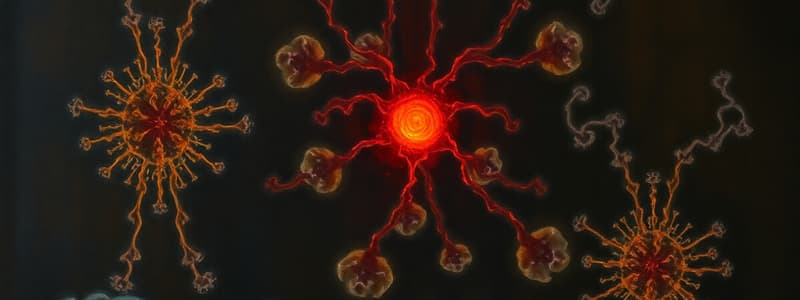Podcast
Questions and Answers
Study Notes
Inflammation
- Inflammation is a protective immune response to injury or irritants.
- Infection is the invasion of microorganisms causing cell/tissue damage.
- Inflammation and infection frequently occur together, and inflammation can lead to infection.
- "-itis" suffix denotes inflammation (e.g., appendicitis).
Signs of Inflammation
- Redness
- Heat
- Swelling
- Pain
Inflammatory Mediators
- Histamine, prostaglandins, and kinins cause:
- Vasodilation (redness, heat)
- Increased blood flow (redness, heat)
- White blood cell movement
- Edema (swelling)
- Pain
Types of Inflammation
- Local: confined to a specific area.
- Systemic: widespread throughout the body.
- Acute: short-term response.
- Chronic: long-term response; potential tissue damage and disease.
Studying That Suits You
Use AI to generate personalized quizzes and flashcards to suit your learning preferences.
Description
Explore the fundamentals of inflammation, an essential immune response that occurs due to injury or irritants. This quiz covers the signs, inflammatory mediators, and types of inflammation, detailing how they function together and their implications for health. Test your understanding of both the local and systemic responses of inflammation.




